When it comes to bathroom renovation, one area that is often overlooked is the shower drain. Many assume that everything is fine as long as the water flows. But there are some things you should never put down the shower drain. They can cause clogs and other issues that can be costly and time-consuming to resolve.
Things you should never put down the shower drain:
Be careful about what you put down your shower drain. Here are some things that you should avoid putting down your shower drain:

Hair:
Most people put down the shower drain hair. Hair is one of the leading causes of clogs in shower drains, as it can become tangled and trapped in the drain. It can create a blockage that prevents water from flowing. It will lead to standing water and other issues. To avoid clogs, consider using a hair catcher or cleaning out any hair that collects in the drain.
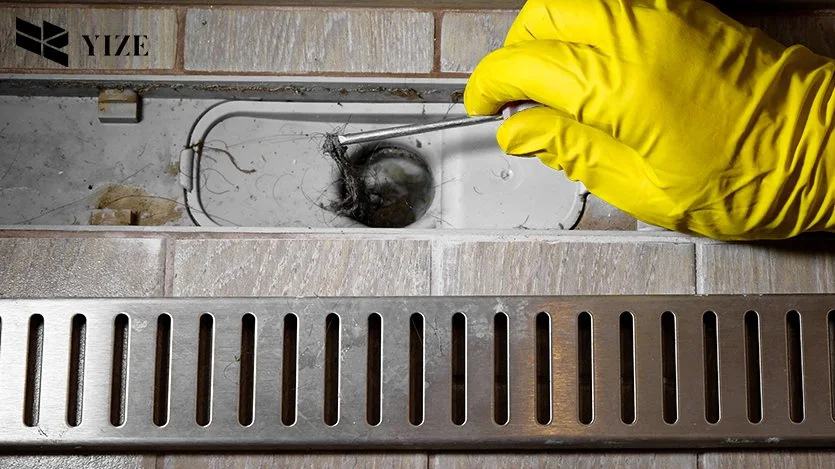
Grease and oil:
Another thing that you should never put down the shower drain is grease and oil. These substances can solidify when they come into contact with water. And for a thick and sticky mass that can clog the drain. Using oil-based products in the shower, such as soap or lotion, can be a problem.
To avoid this, consider using a drain cleaner or cleaning your drain with baking soda and vinegar.
Soap scum:
Another common problem is soap scum and other bathroom products. Over time, soap can build up and create a thick, gummy substance that can clog your drain. It can lead to standing water, foul odors, and other problems.
Foreign objects:
Foreign objects may seem obvious. But avoiding putting foreign objects down your shower drain is essential. It includes toys, jewelry, and other small items that can become stuck and cause clogs.
Food:
Food waste can cause clogs in shower drains because it can build up and create a blockage. If food particles are well washed down the drain and stuck in the pipes, it can happen. Over time, the food waste will begin to rot and create a foul odor, which can be challenging to remove.
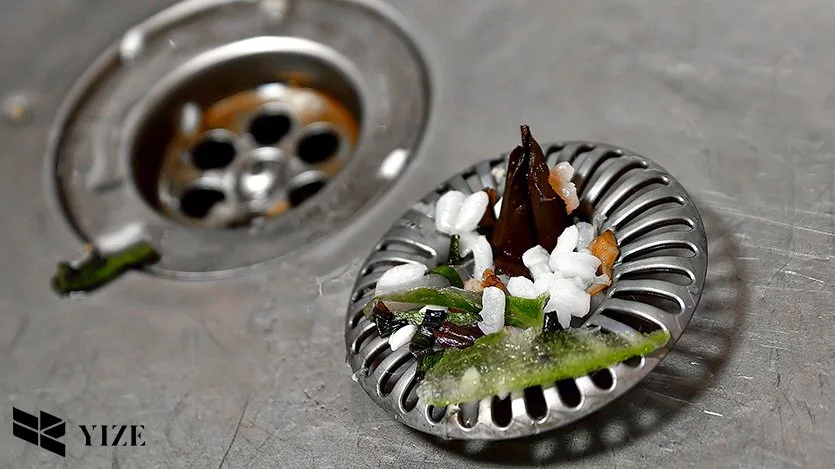
Besides, food waste can rot, create clogs in your drain, and attract pests. If the clog is not addressed, it can lead to water damage and other plumbing issues. Must dispose of food waste and clean and maintain your shower drain to prevent clogs.
Coffee grounds:
Coffee grounds can clog a shower drain if they accumulate in large amounts over time. The grounds can collect and form a thick, slimy substance. It blocks the water from flowing through the drain. Additionally, the grounds can attract bacteria and other organic matter. It can further contribute to clogging. It can result in slow drainage, water backup, and unpleasant smells.
Toothpaste:
Toothpaste can clog the shower drain by forming a thick paste when mixed with water and other debris. This paste can build up and block the drain. It prevents water from flowing freely and leading to a clogged shower drain.
Flushable wipes:
Flushable wipes, even though they are marketed as being able to break down in the water, do not always break down completely when flushed down the shower drain. The wipes can accumulate in the drain and clog, causing water to back up and potentially overflow.
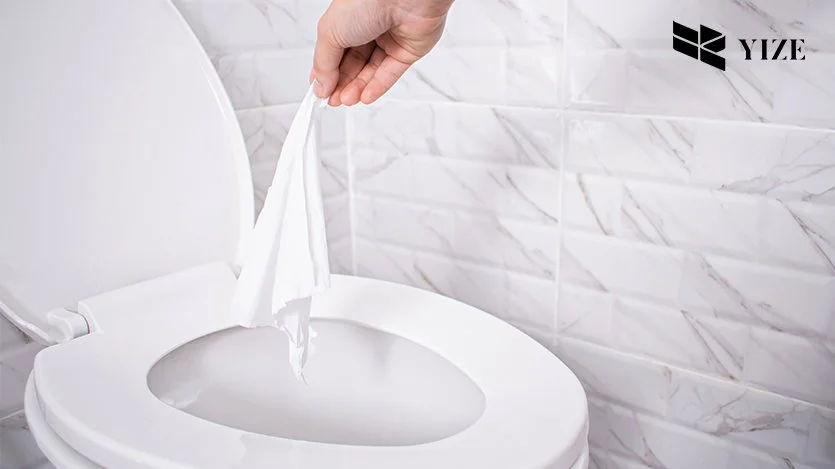
It can lead to a messy and inconvenient situation. It needs professional cleaning to fix. Additionally, the wipes can contribute to the growth of mold and bacteria in the drain. Such condition will create a health hazard. It is recommended to avoid flushing wipes down the shower drain. And more, dispose of them properly in the trash.
Paper products:
Toilet paper and other paper products are made to dissolve in water. But if they build up in your drain, they can still cause clogs. To stop this from happening, don’t flush a lot of toilet paper down the drain. And throw away other paper products in the trash.
Hygiene products:
Any hygiene product that is non-biodegradable and washed down the shower drain can clog the drain. Examples include soap bars, shampoo and conditioner, hair, toothpaste, deodorant, and sanitary pads.
Medications:
Medications can clog the shower drain if they are not correctly disposed of. Pills or medication patches are flushed down the toilet or sink. They can become stuck in the pipes and create blockages. Additionally, the chemicals in medications can react with other substances in the drain. More, it can create a thick, sticky substance that can clog the drain.
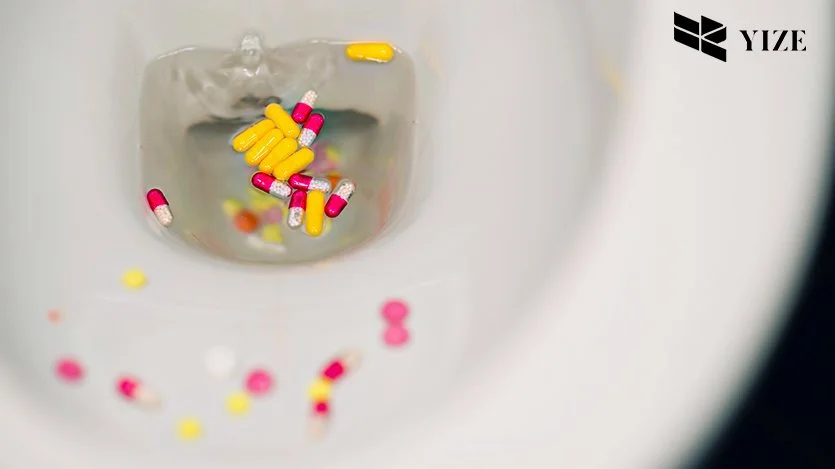
Diapers:
Diapers can clog the shower drain by blocking the opening and preventing water from flowing through. It can occur if the diaper is not disposed of properly and ends up in the drain. The absorbent material in the diaper can also break down and create a sludgy substance. They can further clog the drain. Additionally, bacteria and mold can grow on the diaper and cause a foul odor, which can also clog the drain.
Chemical cleaners:
These can be harsh on your pipes and cause damage if used over time. Besides these everyday items, there are other things as well. These include cotton balls and swabs, which can become tangled and trapped in the drain. And dental floss can create a tangled mess that is difficult to remove.
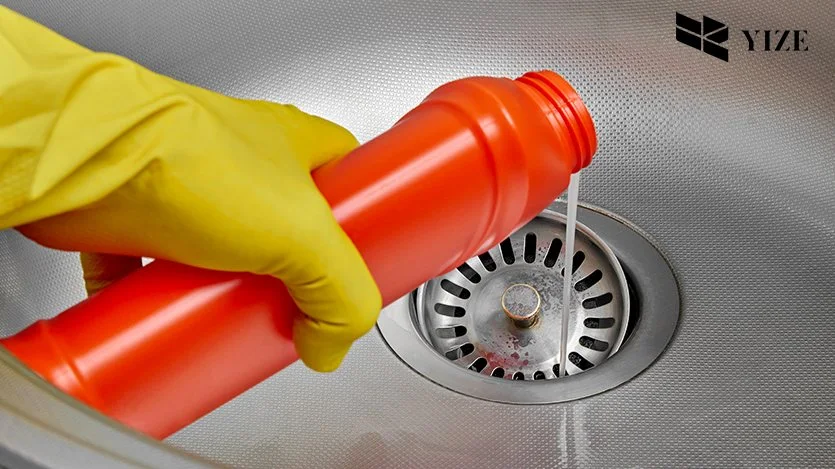
Tips To Avoid Drain Clogs:
Drain clogs can be a significant inconvenience and cause various problems if not addressed. You must follow a few simple tips to avoid clogs and keep your drains functioning.
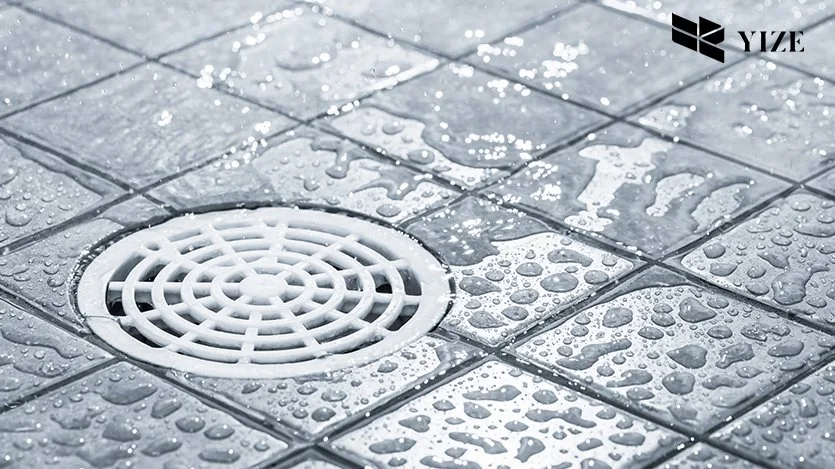
Avoid Flushing Items:
First, avoid putting certain items down the drain. It includes hair, soap scum and grease, paper, and sanitary products. Hair is one of the most common causes of clogs, so you must use a hair catcher to prevent it from going down the drain.
Soap scum and grease can also build up over time and cause clogs. Thus, avoid pouring grease down the drain and use a drain cleaner or other product to remove soap scum. Paper and sanitary goods should be discarded in a trash can rather than flushed down the toilet.
Regular Cleaning and Maintenance:
Second, cleaning and maintaining your drains is a good idea. It can help prevent clogs and ensure that your drains are functioning. Pouring boiling water down the drain once a week is an easy technique.
It can help dissolve any soap scum or grease accumulated in the drain. For more stubborn clogs, you can use a mixture of baking soda and vinegar to help break up and remove the clog.
Flush Only Toilet Paper and Human Waste:
Third, be careful what you flush down the toilet. Only flush toilet paper and human waste down the toilet. Regular maintenance and careful drain use can prevent clogs and other issues.
Following these tips can help prevent drain clogs and keep your drains functioning. Regular maintenance and careful drain use can prevent clogs and other issues.
Conclusion:
You must be cautious about what you throw down to avoid clogs and other problems in your shower drain. Use a commercial drain cleaner or vinegar and baking soda mixture to clean the drain.
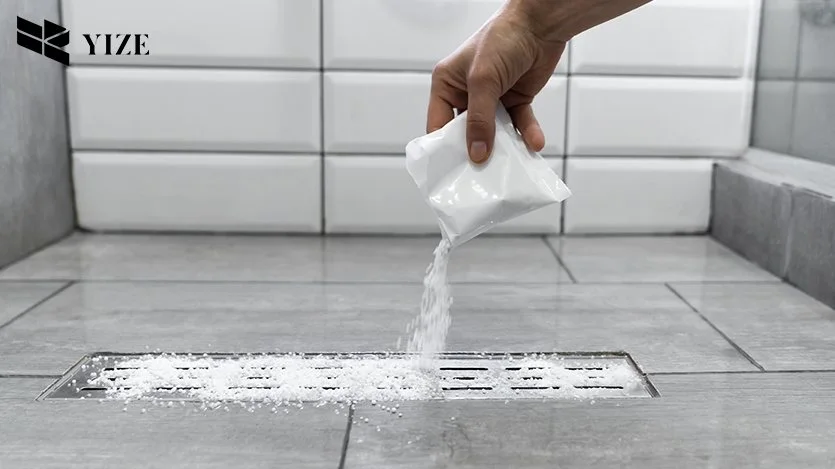
These strategies prevent costly and time-consuming shower drain repairs. It will improve your bathroom and protect your home investment.
You must clean and maintain your plumbing to avoid clogs and other issues. If you experience a clog, it’s best to call a professional plumber to handle the issue.
FAQs:
What do you do with unsafe chemicals poured down the drain?
It is generally unsafe to pour chemicals down the drain, as they can harm the environment and your plumbing. Instead, you should dispose of chemicals by following the label’s instructions. Or you can contact your local waste management agency for guidance.
What can I pour down the drain to clean it?
You can use a mixture of baking soda and vinegar or a store-bought drain cleaner to clean your drain. These solutions are safe to use and can help to remove clogs and keep your drain flowing.
You shouldn’t flush grease, coffee grounds, and large food particles. These can solidify and clog your pipes, leading to expensive plumbing repairs.
Can rust go down the drain?
Rust itself is not harmful to plumbing, but it can say that your pipes are corroding, and you may need to replace them. Having a professional plumber inspect your pipes is best to determine the best course of action.
Do mouthwash, and aloe vera clog drains?
Mouthwash and aloe vera are generally safe to use in small amounts. But it is best to avoid pouring large amounts of these substances down the drain. Over time, they can build up and cause clogs. So it is best to use them if you are unsure whether a particular substance is safe to put down your drain. It is always best to consult a professional plumber.
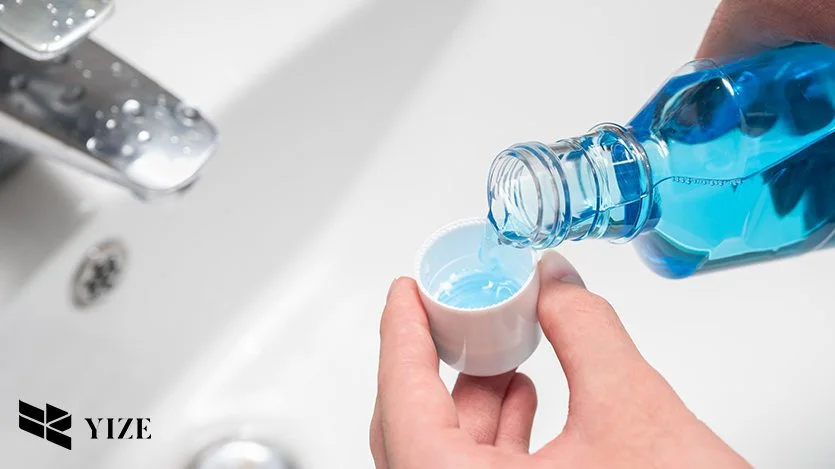
Can I pour bleach down the drain?
It is generally unsafe to pour bleach down the drain, as it can harm the environment and your plumbing. Bleach is a strong chemical that can corrode pipes and cause leaks, which can be expensive to repair.
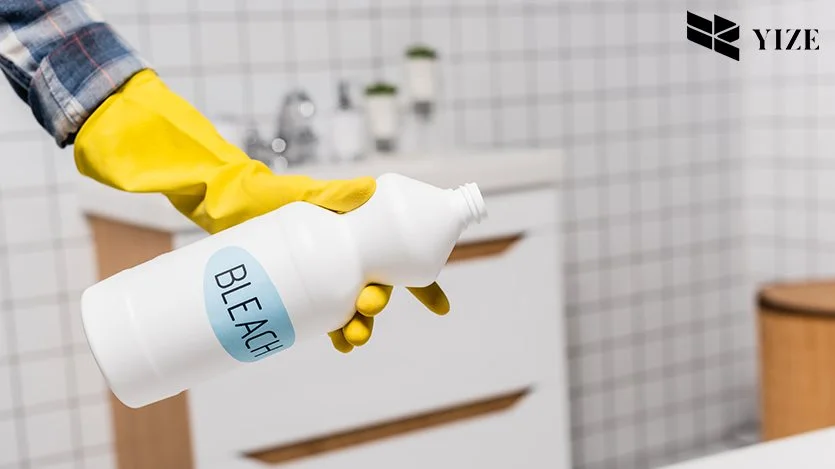
You can clean your drains without bleach by mixing baking soda and vinegar. Or you can buy a drain cleaner. These solutions are safe and effective and will not damage your plumbing.
What is a black gunk in my bathroom sink?
The black gunk in your bathroom sink drain is likely a buildup of soap scum, hair, and other debris. Over time, these things can mix to make a thick, sticky substance that can clog your drain and cause water to back up.

